This afternoon, I went to a wholefoods seminar. But not just any wholefoods seminar – a wholefoods seminar geared towards nurturing healthy children, hosted by none other than Jude Blereau, Dr Rosalba Courtney, and Holly Davis. It was phenomenal. A lot of the information given was facts and styles of eating that I already know and live, but there was still plenty of information that took my knowledge to a deeper level.
The afternoon started with a talk by Dr Rosalba Courtney on the evolution of health problems currently all too common amongst our children (ranging from allergies and asthma to Autism and ADHD), and how our environment (foods, chemical exposure, exposure to nature, etc) affects our various bodily systems. Rosalba is an osteopath, naturopath, acupuncturist, and breathing therapist. She focussed particularly on breathing (nose breathing vs. mouth breathing) and how mouth breathing can totally change our outer features (for example, facial structure) in addition to our internal systems (which are all connected; you stress one system, you stress them all). Of course, Rosalba mentioned wholefoods as crucial to good health, by way of following more traditional diets and ensuring that all our foods are bioavailable (i.e. that the food is in it’s most digestible form and that the nutrients and life-giving properties of the food are readily available to us). Key in Rosalba’s discussion of wholefoods and lifestyle were an immersion in nature (including the dirt and, more specifically, bacteria!) as well as getting back to fundamentals and eating foods that are whole and alive. She spent some time discussing the benefits of raw milk and why it holds those benefits, mentioning a couple of interesting studies along the way. She spoke about how healthy children vs. unhealthy children breathe, and how children can be taught to breathe correctly if they happen to switch over to mouth breathing (while also altering other environmental factors such as diet). This talk was fascinating, and was probably the area that I knew the least about. Rosalba’s website is www.breathandbody.com.au, please head over there and have a little read to learn more.
Then Jude Blereau spoke, and absolutely oozed loveliness. One of my favourite things that she said was that, “We are spiritual beings having a human experience.” Essentially, our body needs fuel (nutrients), but our souls need food (whole, traditional, ALIVE food). The life-giving properties of things like unprocessed grains and raw milk just can’t be measured in vitamins and minerals, but they do mean an awful lot to us as beings. As does deliciousness – Jude said many times that there is just no point in eating healthy food if it doesn’t taste good! And there is truth to this; we know that digestion starts in the mouth, so it makes sense that if something delicious causes us to produce more saliva and prepares our digestive system then it will be better digested. I also loved Jude’s take on additives, stating that she just doesn’t care about additives because she doesn’t want them! This really resonated with me. I don’t care what side effects certain additives have, or what additives have been ‘proven safe’ (by a very short-lived animal study, which the scientist in me just cannot take seriously anyway) – because I don’t want to eat ANY of them. I don’t care how ‘tasty’ or ‘sweet’ or ‘safe’ they are… they are not food and I will not put my body through the turmoil of trying to decipher and digest them. These things are much more important when it comes to our children. Jude explains that our precious children, whose systems haven’t yet fully developed, are being bombarded not only by foods that are difficult to digest, but that these foods are not prepared in any manner that will make them easier for our children to digest them. She shared the view that children should not be fed foods that their bodies are not yet ready to handle. Rather, we as parents should start them on the foods that they are prepared to digest, use certain foods such as bone broths to aid digestion, and ensure that the foods we are serving our children are in their most easily digested form. For example, we should be soaking our grains/seeds/nuts to break down phytic acid and deactivate enzyme inhibitors. Oh, and FATS. Our children should be eating fat. And lots of it. But not in the form of processed fats such as vegetable shortening. Rather, pure fats such as animal fats from meat and dairy plus cold-pressed, unrefined coconut oil. Jude also mentions that in order to have the most delicious, nutrient-dense and life-giving foods possible, they must come from a good source. Minus the pesticides. Minus the stress and the horrible living conditions. Good, real food. If you’d like to read more about Jude’s wholefood philosophy plus cook some of her deeelicious recipes, she has a blog, and a facebook page.
Holly Davis spoke last, about another method of aiding digestion: lacto-fermentation. I’m sure most of you already know about the benefits of good bacteria, so I won’t harp on for too long about that in particular. Just a quick summary: our digestive system is full of good bacteria and we NEED that good bacteria in order to get the most out of our food and keep everything running smoothly. But we live in a very sterile environment, with antibiotics and soaps and wipes and sprays and creams and gels and many other products that kill 99.999999999999999999999% of bacteria – including the good ones! It is all too easy for our bacteria colonies to get upset and out of balance. We need to be constantly re-introducing good bacteria to our bodies. The most commonly known lacto-fermented foods are yoghurt and cheese. Holly brought some beautiful lacto-fermented specimens to the seminar this afternoon including kimchi, kefir (2 kinds; water and milk), kombucha, pickled cabbage, pickled baby carrots, cultured butter… probably more, it was just too much goodness for me to take in! As Holly explained, these are not your sterilised American-style pickles whereby produce is ‘pickled’ in a completely sterile (cooked/dead) brine. Rather, lacto-fermented foods are very much ALIVE. You utilise the good bacteria found naturally on the produce and provide a medium in which the good bacteria can thrive, so that we can reap the benefits. And as Holly said, these benefits are even more important for children. Their digestive systems are not fully developed and haven’t had the exposure that our grown-up digestive systems have. Why not give their digestive systems a little help along the way?!? And Holly also pointed out that not only does the ingestion of good bacteria help us, but these good bacteria also help our food during the fermentation process – they multiply the nutrient content of the fermented food many, many, many times over. Talk about a superfood! (Again, this does not apply to sterile pickles – only properly fermented pickles.) Holly gave many tips for incorporating both the pickles AND the pickling liquid into a child’s diet in a way that they will tolerate and actually enjoy. For more information about Holly, her views on lacto-fermentation, and some tips and recipes head over to her blog and facebook page. Holly runs cooking classes (see website for details), and I am particularly keen to head along to one of her lacto-fermentation classes as soon as I have the chance!
It was also nice to see a familiar face from Honest to Goodness, where I get all my organic grains/nuts/beans/dried fruit/coconut oil etc. They have a wonderful storeroom in Artarmon (Sydney) and they also deliver if you place an order in their online store. Their staff are wonderful people, and more often than not, Tyler leaves with some freshly-rolled oats and a handful of dried fruit. Needless to say, he loves shopping there as much as I do!
To finish off the afternoon, we had a scrumptious afternoon tea of various lacto-fermented veg on what I can only assume was bread made from soaked and possibly sprouted grains, plus a few little wholefood sweet treats. It was absolutely scrumptious, and definitely backed up Jude’s claim that wholefoods don’t have to be boring and should indeed be delicious!
The main things I have taken away from the seminar (in addition to an explosion of knowledge):
1) Soak!!!! I have known for a while that I need to be more organised and soak more than just beans. Now that I know even more about the whys and hows, it is something I will definitely start doing.
2) Just pack up and go visit a farm more often. Get exposed to some POO!
3) Make bone broths! Again, like #1, it’s something I know I should be doing but now I will get my act together and actually do it! I managed to snatch a moment of Jude’s time to ask her if bone broths can be frozen and yes, they can!
4) More amaranth! It is a much more easily-digested grain. Lucky for me, I have a big jar of it sitting in my pantry, desperate to be used.
5) Start lacto-fermenting!
The seminar cost me $65. Was it worth it? ABSOLUTELY. Every single cent. If you have a chance to see any or all of these people in action (be it a seminar, cooking class, whatever), I very very very strongly recommend you go along. They are such wonderful women, all too keen to share their knowledge with the rest of us and improve the present and future for adults and children alike.
A big thank you to Rosalba, Holly, Jude, Honest to Goodness, and everyone else who made the seminar possible! It was a wonderful afternoon. 🙂
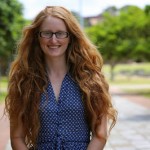
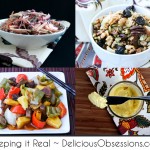
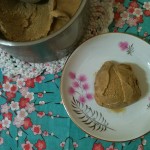
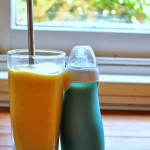
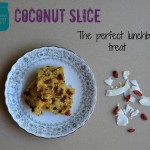
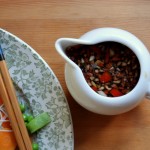
Great post Sarah and thanks for your ongoing support! It was such a fabulous day and we were so thrilled to be surrounded by such talented and passionate people! The Team at Honest to Goodness xx